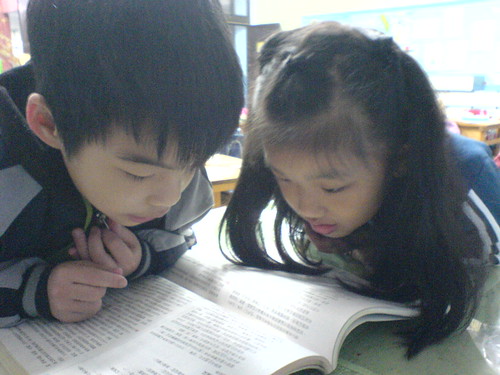 Educators in public schools and homeschooling parents from across the country all seem to agree on at least one thing: The key to producing a great student is to produce a great reader. The written word opens up a world of opportunities, and teaching a child to read is one of the first goals of any educator.
Educators in public schools and homeschooling parents from across the country all seem to agree on at least one thing: The key to producing a great student is to produce a great reader. The written word opens up a world of opportunities, and teaching a child to read is one of the first goals of any educator. As a homeschooling family well into our sixth year of educating at home, we make frequent trips to the library. We sign up for all the reading programs and keep books available to encourage good readers.
However, as a Christian family, our higher goal for our children is for them to be Godly. They may get points in the reading program for reading the latest teen magazine or comic book, but will that further their relationship with God? Does it matter what their lexile score is if they waste it by perusing popular books on black magic? Will fluency and comprehension be of value if they are reading about pre-teen dating relationships?
In order to train our children to be good readers, we go beyond phonics and try to instill these reading rules as well:
1. If something makes you uncomfortable, stop reading and show it to Mom or Dad. Some books, no matter how well-written or decent, are just too old for certain age groups. For example, while kissing is a proper activity for married couples, I do not find it good subject material for my second and fifth graders.
2. If a sinful behavior is portrayed as normal or good, stop reading and talk to Mom or Dad about it. My daughter found an example of this in the classic tale of Puss and Boots. She mentioned to me that it seemed to teach lying as a good thing to do. While many parents might scoff at a cat in boots breaking down the moral fiber of their children, what if the sin of choice was murder? Would we still look the other way if our children were being taught that killing others for personal gain is something to be desired?
3. If Evil wins over Good in the story, stop reading and tell Mom or Dad. We do not necessarily teach our children to put down a book that has evil in it. If this were the case, the Bible would largely have to be set aside as well as historic accounts of our wars.
In a child's terms, if the bad guy wins, the book is not Godly. While parents should shelter tender hearts and minds from some accounts of evil, our children are living in a world where Evil resides alongside Good. The main thing for them to know, whether it is the story of Calvary or Dicken's classic, Oliver Twist, is Good will always prevail in the end.
In some ways, it might be easier to read all of my children's books before they do. However, if I do that, they will never be able to learn Godly discernment. We do try to control the type of books that come into our home. However, it is easy for innocent-looking books to slip in. I would have never thought to eliminate Puss and Boots from our family shelves, yet my child discerned for herself that it may not be a book to build Godly character.
When my child graduates from high school, I will not care so much that she could read chapter books at age 4 or that he read three grades beyond his grade level. I will see the results of the words that have shaped my children over years, and I trust that Good will ultimately win over Evil.

Excellent points and advice. As a child, I always had a sensitivity to anything which might be against my faith and convictions, and was often made fun of for "opting out" of different activities in school. (As a teenager I learned how to play some of it to my advantage, often getting the best of the teachers by fulfilling the assignment to the letter but not in any way they'd have expected. HA!)
ReplyDeleteAnyway, I've come to realize that's not instilled in all of us from birth as it seemed to be me, and this is the best compilation of suggestions to help guide kids that I've seen.
Thank you for this list! It's something that's hard for me to convey to my own kids because it came so naturally for me. I'll refer to this again! Blessings!
Thank you for this post! I have long been looking for a site that just reviews books for children, but this really gets to the heart of the matter and helps our kids evaluate. LOVE IT!
ReplyDelete